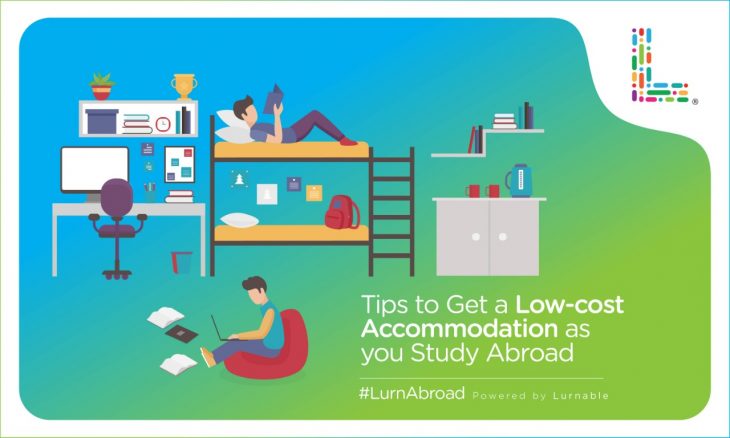If you have study abroad plans, you need to think beyond the choice of country, university, and programme. Even as these factors come on the top of your international education budgeting checklist, there’s a lot more that will add up. Travel expenses and visa fees are crucial, but you will need to incur them only a few times (when you fly in and fly out of your home country).
Living costs are a vital factor, and accommodation happens to be the largest proportion of these costs. When you are on a scanty budget, you need to choose wisely. Ideally, the accommodation should have all the amenities you need but shouldn’t burn a hole in your wallet. It should be safe and have a feasible location. Hunting for a perfect home seems like a lot of work, so it makes sense to get some advice. We have some helpful tips for you.
Planning matters the most
Planning matters the most when it comes to finding an amazing accommodation option at a low cost. As a rule, you will need to do it on your own, so plan ahead and be stress-free. Have a good look at your monthly budget before you go house-hunting. You can start early, even before you reach there. It is easy to look for options online, so get started with some browsing. It will give you clear expectations and take you a step ahead with understanding what will work for you. You can even prepare a checklist of available properties to get a head start when you reach.
Look for support and guidance
International students can check if the university has an in-house accommodation option because it can be a great support, specifically when you are short on budget. Even if they don’t have the choice, they can help you find a place or simply advise you on the best practice to follow. Additionally, there are specific organisations and support groups for international students in most countries. They play a supportive role and even help you find a place that fits into your budget.
Understand your options
There are different options in the accommodation you can explore, depending on your study abroad destination and university of choice. These are available at different costs and provide very different experiences. You can explore the following:
- Campus accommodation- Since it is a university-run accommodation located on the campus itself, you can expect it to be available at an optimal cost. The best part is that you can save loads on commuting expenses. Safety is another reason to prioritise the option. Don’t forget the social benefits as you get to mingle with other students, attend social events, and even dine together in common halls. However, you cannot expect university housing to be available everywhere. Germany and Holland have rare ones, while the French universities reserve them for students with government-distributed scholarships.
- Private accommodation- If university dorms are not available or you don’t like them enough, you can consider a private rental. It is often a more expensive alternative, but you can find low-cost ones by exploring places. But do calculate the expense of commuting because the affordable option may be far away from the university. You may save up on rentals but spend a lot more on daily transportation. Calculate smartly to find a house that fits into your budget. You can find a shared space as it will cut the cost in half.
- Homestays- International students in the US, Canada and Australia can explore the option of homestays with a local family. The experience is incredible, as you get a slice of local culture and lifestyle and even learn the language. In some places, universities run schemes to match students to suitable families. Home-stay costs are reasonable, and prices usually include meals.
Have an ideal accommodation checklist
Once you decide the budget and accommodation option for staying while you study abroad, you must weigh the pros and cons. Never take a hasty decision because it may land you in the wrong place. Here is an ideal accommodation checklist that can help you finalise the place and ensure that it matches your expectations beyond the pricing factor.
- Does the place have furnishings included? Are you happy with their standard?
- Does the kitchen have the necessary appliances and cooking utensils?
- Does it have a comfortable work desk and space for your computer?
- Will you get additional services such as laundry facilities, and what is the cost of these services?
- Will you get phone and internet access and how much will they cost?
- How far is the place from the campus? What will be the cost of daily commuting?
- Is the place located in a safe neighbourhood?
- If it is a shared space, are you comfortable with your housemate?
While you may want low-cost accommodation, make sure that you assess the complete picture rather than only consider the cost of housing. Think carefully and choose wisely to have the best experience of living abroad without pinching your wallet.

If you are considering studying abroad why don’t you discuss your prospects and opportunities with experts at Lurnable’s dedicated study abroad counselling division LurnPathways?






